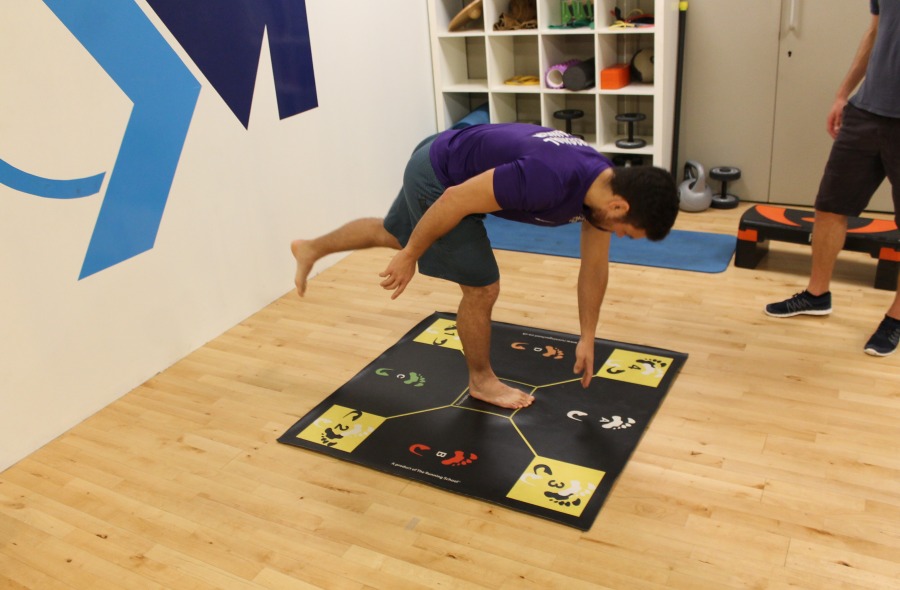The majority of athletes we treat and coach have been training hard for events that have been cancelled due to the COVID-19 pandemic. Mentally this can be very difficult when you have been putting hour after hour in on the road or in the pool. Daily routines and training plans have been severely disrupted and nobody is certain as to when some normality will resume or racing season will start again. Our athletes are experiencing different levels of restrictions all around the world, some hugely limited to the amount of time they can spend outside and some less so. Over the past few days we have attempted to put together some key points that you can incorporate into your training based on the restrictions that have quite rightly been put in place.
Be Responsible
Firstly, it is important to remember that your number one responsibility as a runner, cyclist, swimmer or triathlete is not to endanger others. This has always been the case but is especially important to remember during these circumstances. We do these sports for fun and enjoyment and to achieve goals such as running a marathon or swimming 1 mile continuously. Acknowledging that some groups will never even have access to achieving these potential goals means that things get put into perspective.

Races Will Start Again
The one thing we can be sure of is that race season will come again. You will race again and you will want to achieve your goals you have already set. We don’t know when race season will be but that doesn’t mean that training and self-improvement should be put on hold. It would be a mistake to be too specific about your training because nobody knows when they will be racing. It maybe time to go back to basics. As endurance athletes we are lucky in the fact that we don’t need a massive amount of resources to improve. Ask yourself what you can do using the resources you have available to make yourself a better athlete? Is it time to go back to basics?
For the athletes we are fortunate enough to work with we will focus on improving aerobic base and enhancing technique. It’s a simple statement but we know that the runners and triathletes who come out the other end of this crisis in a fit and healthy state will be the ones who are most prepared for their events. Focusing your hours on high intensity training may feel good in the short-term (especially to try and distract yourself from the frustrations that are currently present) but this can be damaging in the long haul, especially in relation to stress levels and immune system functionality. Similarly, if you had built up to your longest ever long run in the 6 weeks prior to the Manchester Marathon, don’t try and sustain this indefinitely, it is not going to be successful.

Accumulating Good Training over Time
Volume and intensity does not need to constantly increase over time to get a positive training effect. It is more beneficial to maintain a constant level of sustainable training over a period of time compared to stressfully engaging in fluctuating periods of intensity and volume peaks, interspersed with stress and/or injury.
If events were deemed safe enough to start in 4 weeks then we would be confident that 4 weeks of race-specific training off the back of good aerobic base building and technique work would be sufficient time to get good results.
Some practical advice and recently asked questions:
Question: Can my training negatively impact my immune system and therefore my ability to fight off viral infections?
Answer: Sensible, moderate training can boost the immune system when compared to an inactive lifestyle. However, regularly training for long periods at a high intensity and not allowing your body to recover and adapt between sessions can compromise it due to increased levels of stress hormones such as adrenaline and cortisol. These increased levels suppress your body’s white blood cell production.
It is important to take steps to mitigate prolonged exposure to stress (this includes both training stress and life stress). Immune function depression is most problematic following continuous, prolonged moderate to high intensity exercise and especially problematic when done without adequate sleep and food intake. If you have had a mentally stressful day (and these can be quite frequent in the current climate), don’t be tempted to fight this with physical stress.
Question: I have my main race in June that has yet to be cancelled. Should I continue to train as planned?
Answer: It is important not to get excited about races that can potentially be cancelled. Speak to your coach or get some advice on adjusting your goals. Don’t try to preempt any announcements on the commencement of events. If your June race were to go ahead (and we hope it does!) then it would be better for you to be 80% fit and able to do a complete race season afterwards than 100% fit in June and fatigued by July.
Question: I am a triathlete who doesn’t have access to a pool anymore, what should I do to stay on top of my swimming?
Answer: We talk a lot about “feel for the water” in swimming and there is unfortunately nothing you can do to substitute for this feel. Maybe use this time to work on your upper body strength, thoracic and shoulder mobility (most swimmers we see would benefit from working on at least one of these things). You may have access to a thermal wet suit and a lake, if you do then why not try to overcome open water swim anxieties or work on open water skills such as sighting. Obviously this should be done without endangering others and in accordance with the recommended guidelines in your area.
Problem: My race has been rescheduled to Autumn, I don’t have the motivation to carry on training like I have been for another 6 months!
Solution: You don’t have to train like you have been. If you got to March fully prepared for your race in April then there’s no harm in backing off the training and returning to base aerobic miles indefinitely. If you are feeling fatigued then relax until you feel motivated to start again. A good coach can work with you to maintain your motivation and help you to achieve your goals, whenever the time comes.
Problem: I don’t feel comfortable (or am unable) to go outside on my bike or do my usual run around my local park.
Solution: Most cyclists have a turbo trainer that they can use at home. To obtain the social benefit of riding take a look at virtual platforms such as Zwift. You can even fulfill your competitive urge through virtual racing (although you wouldn’t want to do this every day!)
It’s a bit trickier for runners unless you have a treadmill. That said, all runners can benefit from specific running drills that can enhance running economy. A 20 metre length of road or path would suffice! Make the most of this time by improving your run technique.
Also don’t forget the crossover effect between sports and fitness. The aerobic capacity of a runner can be maintained (and sometimes enhanced) through specific time spent on the turbo trainer or cross-trainer. If you are limited then why not try a cross training session followed by 20mins of running drills?
Question: I was planning to do some hard swims this month but I don’t have access to a pool or open water anymore, can I just do runs or bikes instead?
Answer: It may be tempting to replace swim training with time spent on the bike or pounding the roads. It is important to monitor this training load closely though. Increasing run volume too quickly will leave you fatigued and potentially injured. It is also not advisable to increase run and bike volume by a large amount at the same time and certainly don’t substitute a planned high intensity swim session with a high intensity run session without adapting the rest of your training week.
It’s also important to remember that, as you may have more free time on your hands, not to increase your training volume too quickly. This applies to any sport.
We Are Here to Help You
We hope you are able to apply some of the above information to your training. We are all experiencing a strange array of emotions and disruption to our daily routines. In these times it is important to try and keep some elements of normality and, for us, exercise and training are two of these. The social side of sport (and racing season) will start again. We don’t know when this will be but we’ll certainly be appreciating it even more when it does arrive. No matter the resource limitations you face you can always find ways for self-improvement.
To discuss any specific questions you have regarding your specific training or exercise schedule, we are offering free 20 minute phone calls that can be booked online.
